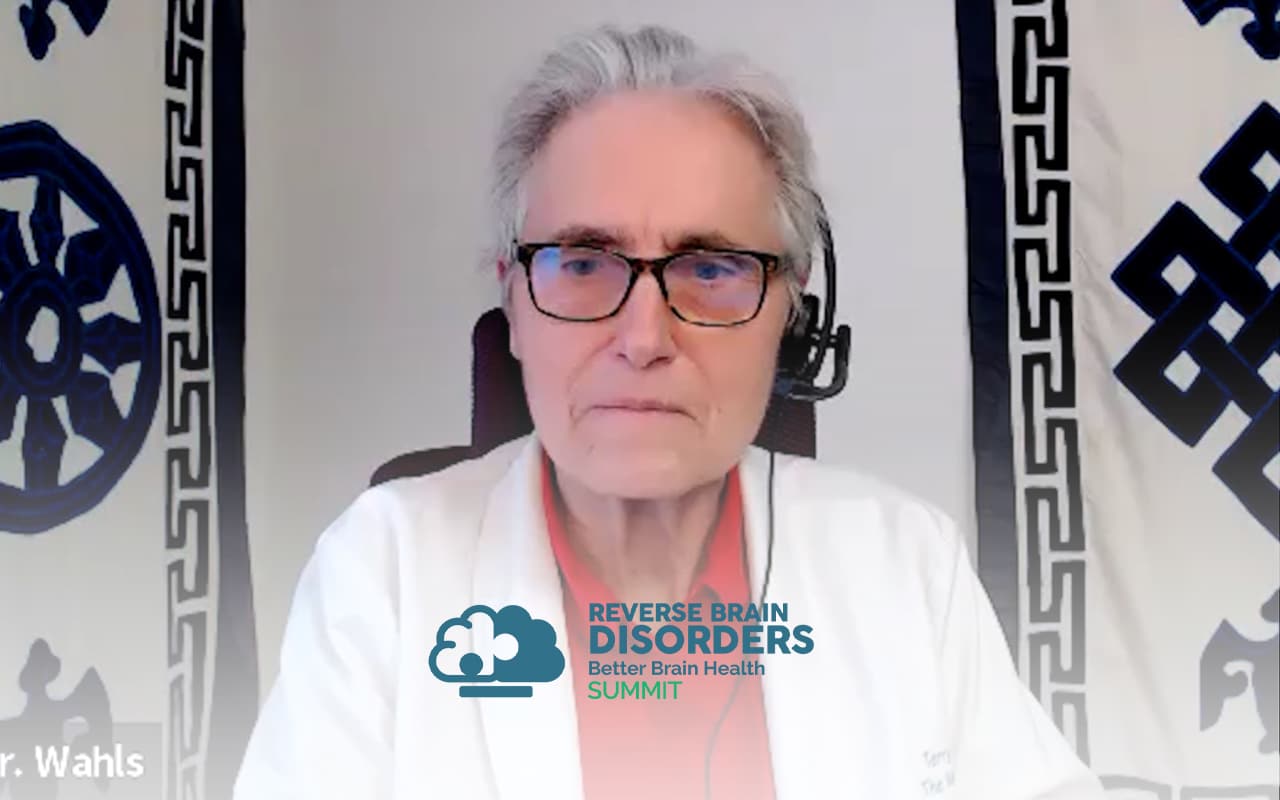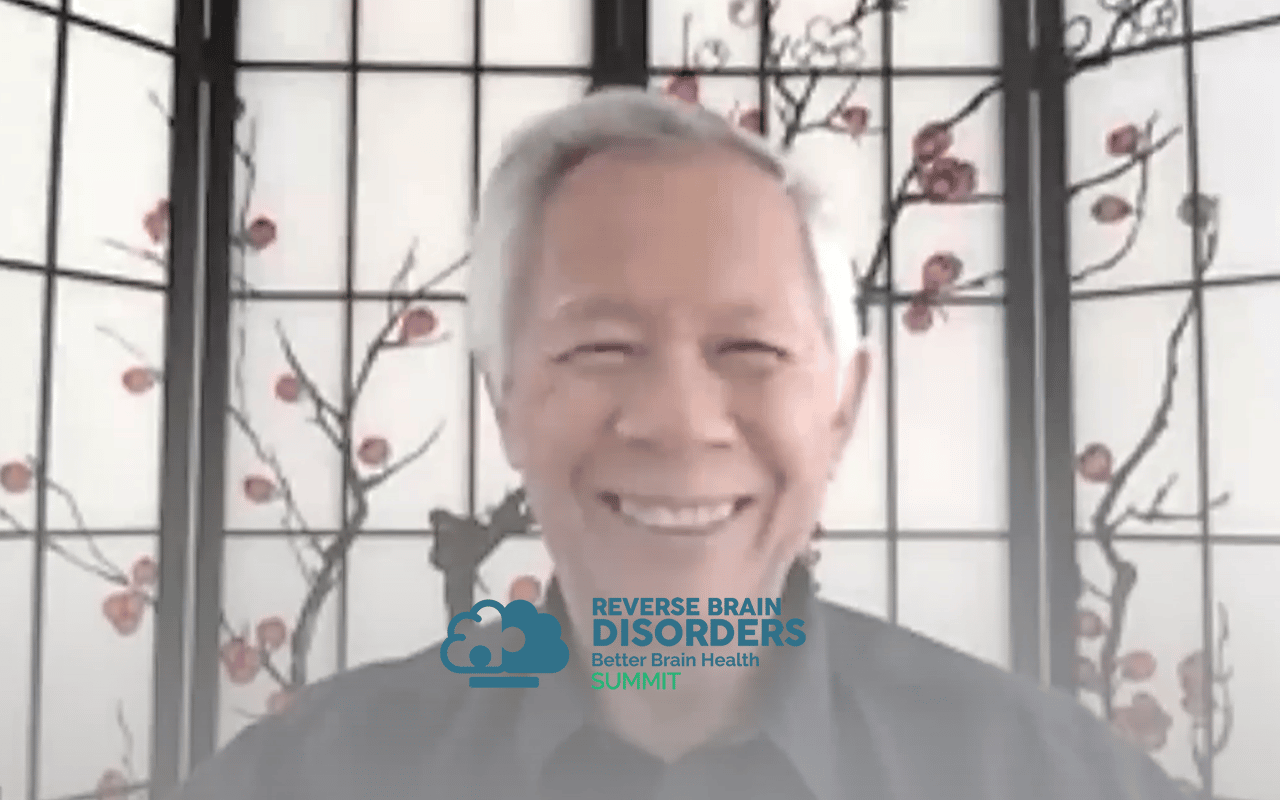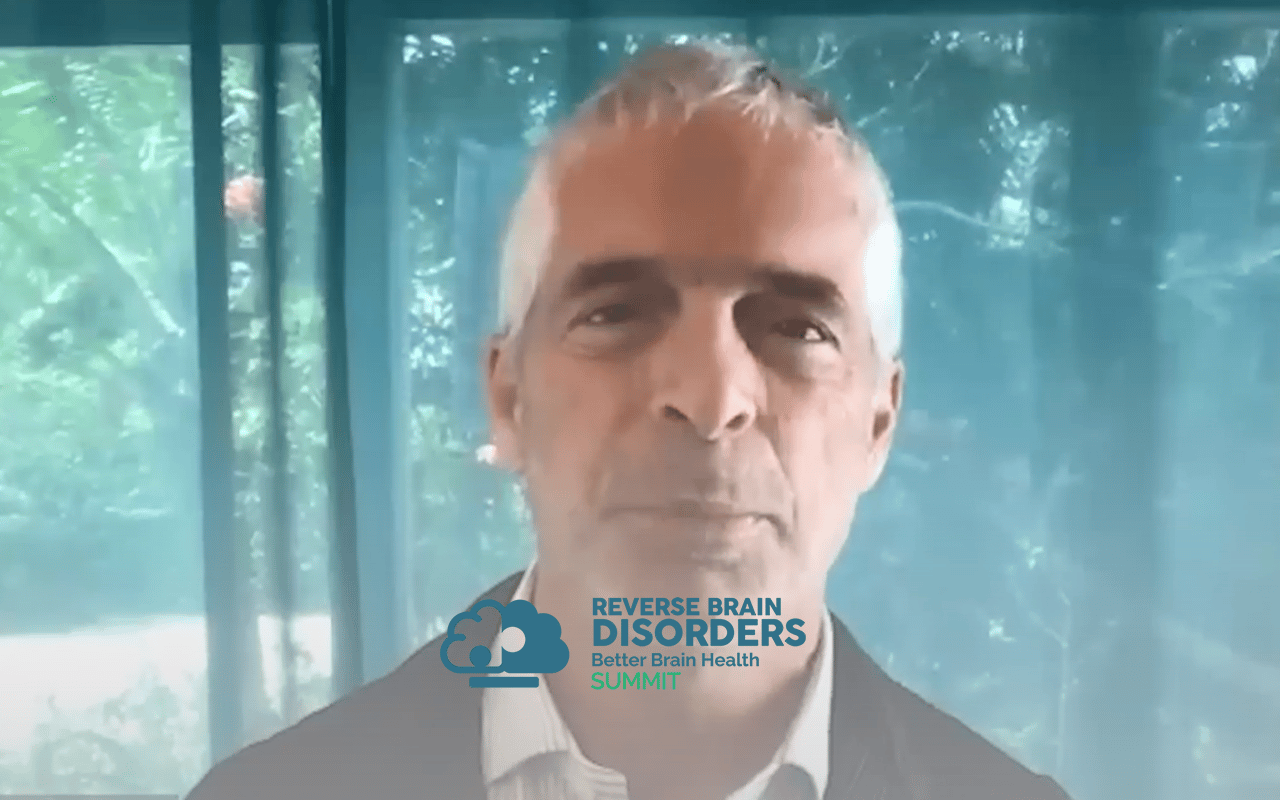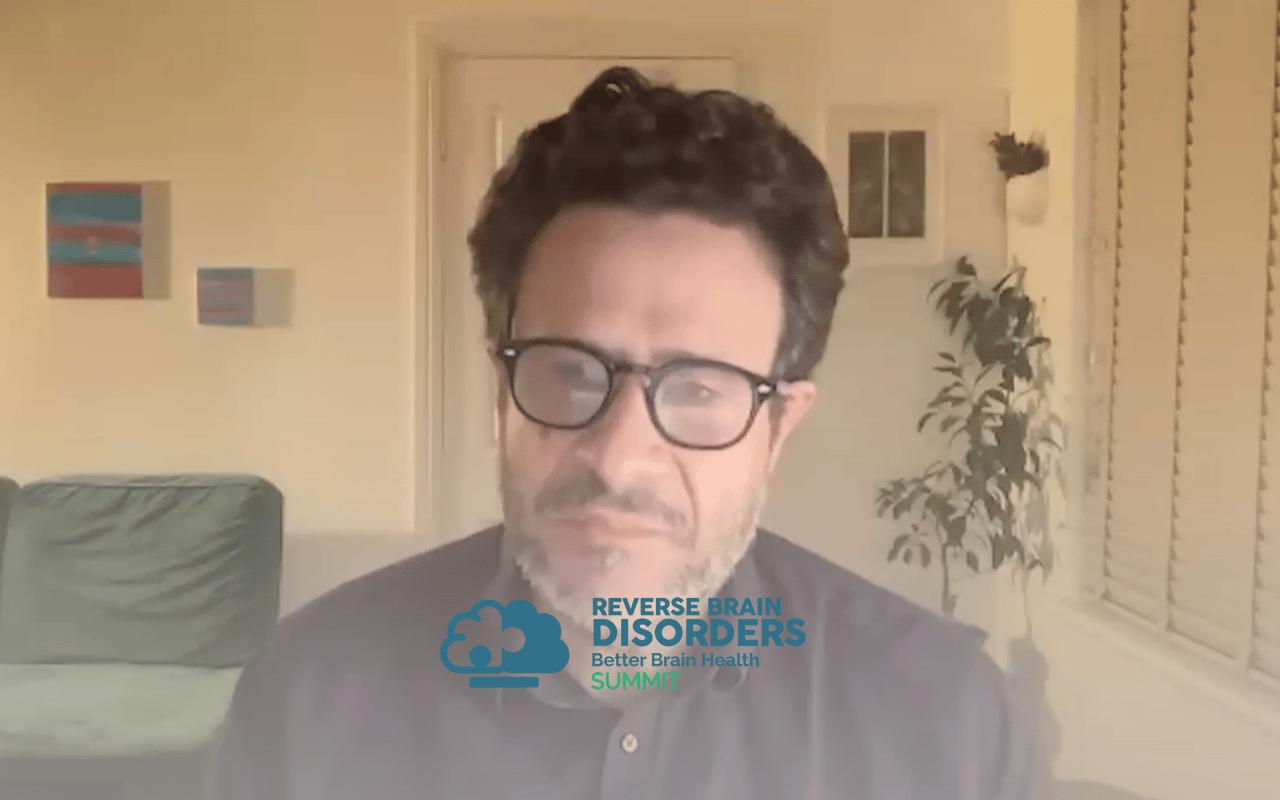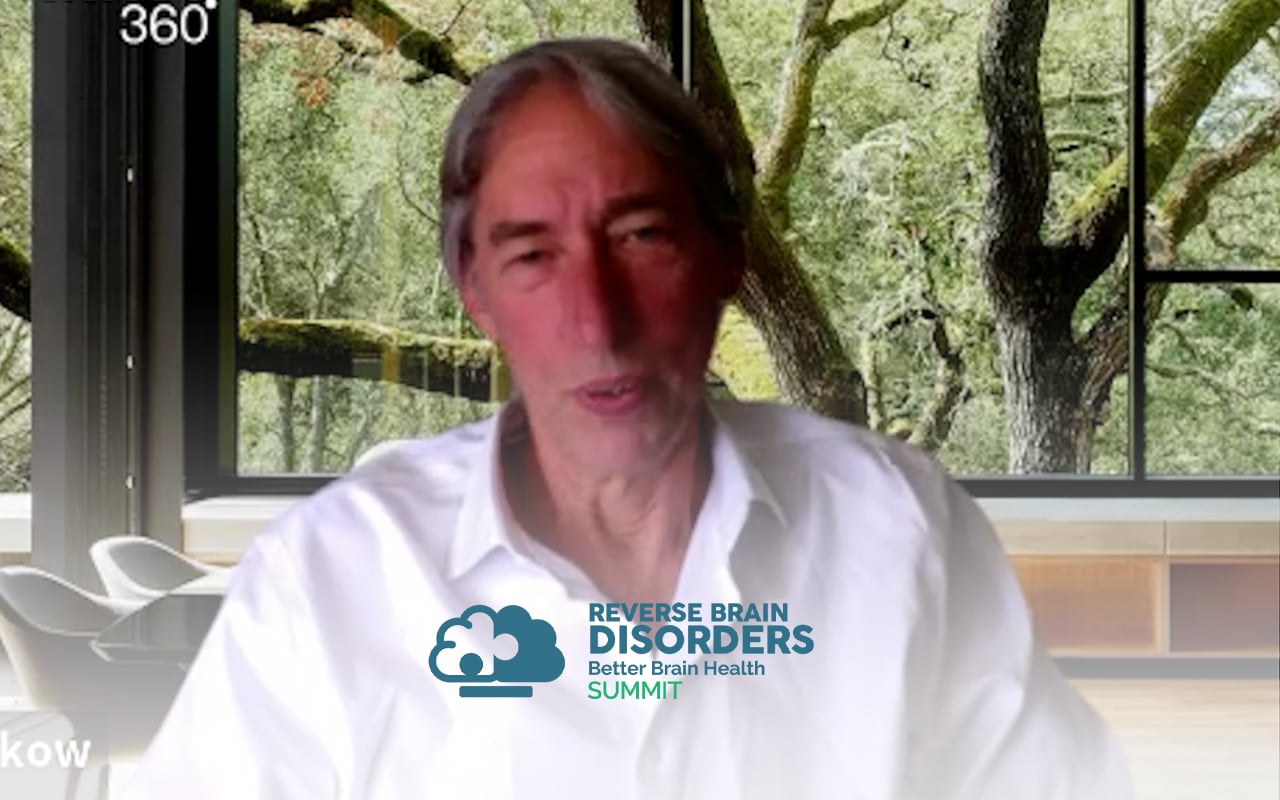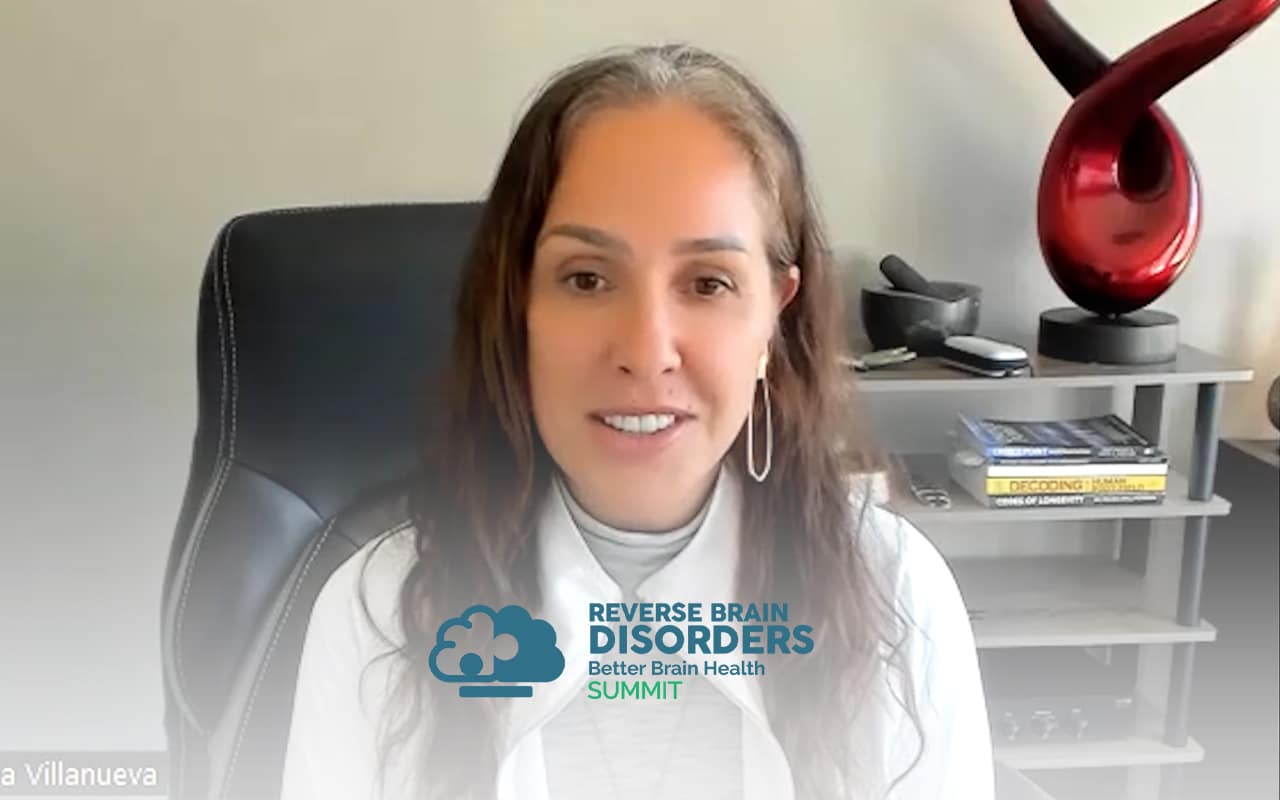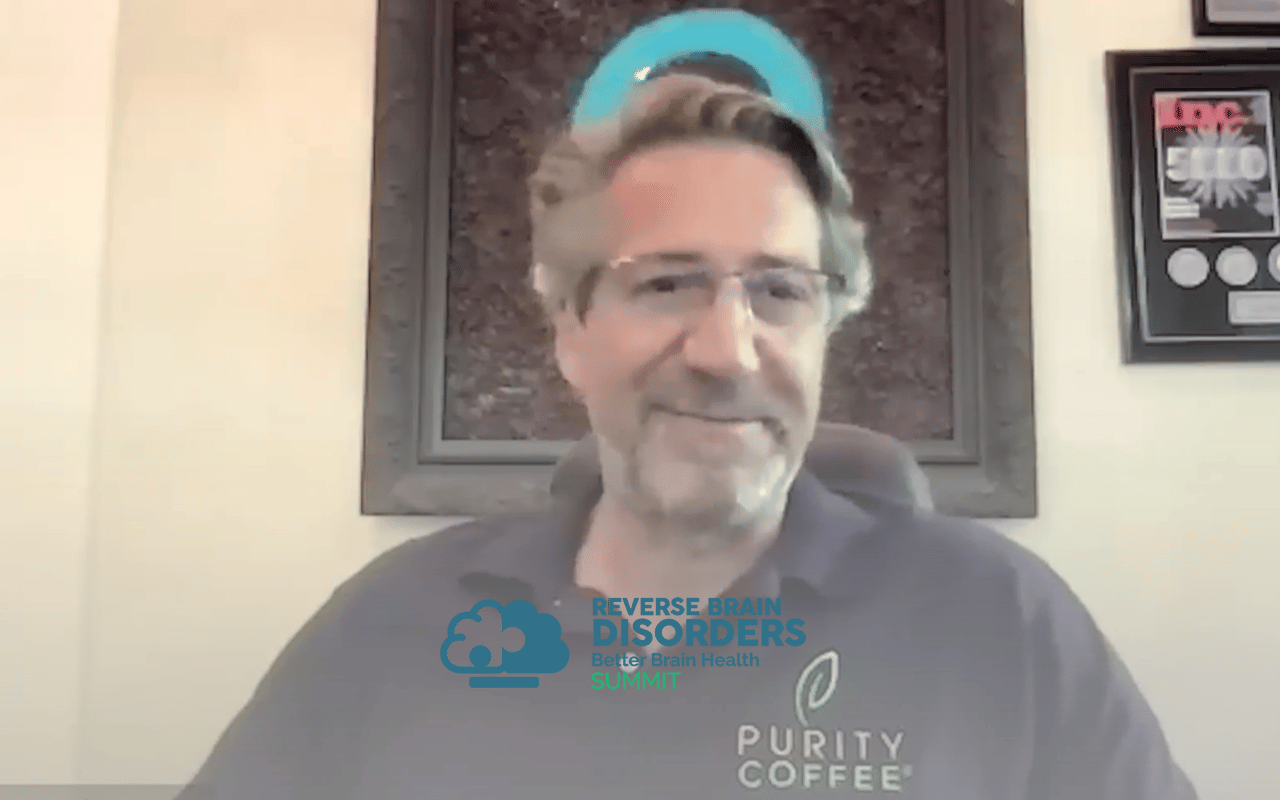Join the discussion below
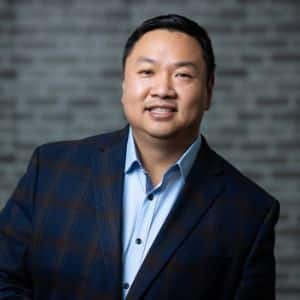
Dr. Ruan is the Founder and CEO of Texas Center for Lifestyle Medicine. He devotes his career in practicing and building systems that allow for efficient delivery of healthcare. He is a board certified internal medicine physician but also have advised with companies to improve their workflow, company culture, marketing,... Read More
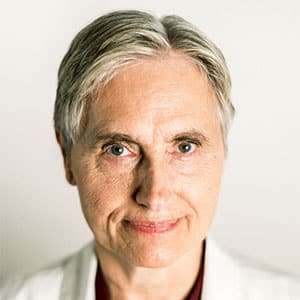
Dr. Terry Wahls is an Institute for Functional Medicine Certified Practitioner and a board-certified internal medicine physician. She also conducts clinical trials testing the efficacy of diet and lifestyle in the setting of multiple sclerosis. In 2018 she was awarded the Institute for Functional Medicine’s Linus Pauling Award for her... Read More
- Healing the brain with lifestyle
- The impact of ancient eating such as organ meats
- New clinical trial enrollment for Relapsing Remitting Multiple Sclerosis
Cheng Ruan, MD
One of the most important aspects of healing our belief systems and the foods that we eat. In this next interview, I interviewed Dr. Terry Wahls, the author of The Wahls protocol. She’s a clinical professor of medicine at the University of Iowa Carver College of Medicine in Iowa City And she is an educator that teaches residents and students and have done clinical research and published over 60 period review, scientific abstracts and posters and papers. In addition to being a doctor, she has her own story and she has been a patient with chronic progressive disease of multiple sclerosis. She was diagnosed with relapsing remitting multiple sclerosis in the year 2000 and around that time started working at the university and didn’t find a whole lot of ways to deal with the MS. And ultimately in 2007 she was basically wheelchair bound and bed written. But now every time I see her on stage she dances, I want her to talk about her transformation and what we can really learn from it because the power to heal the brain can be limitless. As long as we have the right tools. I’m very proud to introduce Dr. Terry Wahls. Well, Dr. Wahls, welcome to the forum. Super happy to have you on.
Terry Wahls, MD
Well, thank you for having me.
Cheng Ruan, MD
You know, it’s been many years since I read the book, the vaults protocol and in fact it’s one of my very first views into lifestyle and brain and in my story it was I was suffering from many because of injuries at the time due to sports and snowboarding and all sorts of great stuff and developed a lot of neurological issues on my own, which is why I created that this brain helps come in the first place in your book is actually the very first resource I ever had, to understand my brain a whole lot more. So I think now we’re full circle and I’m talking to you. So super happy to, I’m super grateful to have you on.
Terry Wahls, MD
Oh, thank you so much.
Cheng Ruan, MD
Yeah, but let’s introduce people to you. Can you just tell them about your story and the things that you’ve been through?
Terry Wahls, MD
So I’m going to do it in real time, you know, back 20 years ago, walking with my wife, Jackie, half mile from home, my left leg goes weak, dragging it humble home the next day. I see the neurologist who says Terry, this could be bad or really, really bad. Now at night in bed next to Jackie, I’m thinking about what it really, really means. And I think about the 20 years of worsening electrical face pains that I’ve been struggling with and I don’t want to become disabled. So actually I’m praying for a fatal diagnosis. I complete the work up. Three weeks later I learned I have multiple sclerosis. I’m a doc. I see that I do my research. I see the very best physicians at the very best Emma center in the country. I take the newest drugs.
Three years later, I hear tilt recline wheelchair. I take my dear Sancho. I take Isabelle. I continue to decline. My electrical face pains are relentlessly worse. My 10 year old daughter hugs me as tears streamed down my face. I can no longer sit up in a regular chair. I have a zero gravity chair with my knees higher than my nose. But I go back to read the basic science night after night and I began experimenting on myself based on what I learned. I decide mitochondria are what drive disability. I start taking supplements to support my mitochondria. The speed of my decline slows and I’m like so grateful. Then I discover a study using electrical stimulation of muscles. I asked the therapist can I try that? He calls it east him. He says it’s for athletes. It’s really painful. He doesn’t know if it will help me because yes he can grow bigger muscles but my brain may not be able to talk to those new muscles. I convinced him to let me try the test session hurts bad. Really, really bad.
But when it’s over I feel great and we add east M. to my physical therapy. I discovered the institute for functional medicine. I take their course in your protection. I have a longer list of supplements and then I have a big aha. What if I redesigned my paleo diet that I’ve been following for five years already. What if I redesigned my paleo diet based on all the supplements I’m taking? It’s several more months of research. I start this new way of eating, December 26, 2007. Now at that time I’m so weak, I cannot sit up in a regular chair. I have severe fatigue, I’m beginning to have brain fog and my trigeminal neuralgia is relentlessly works. However, after a month of this new way of eating and a couple of months of my east my pain is plus my definitely more clear two months into this. I can set up at my desk, I can sit up at the supper table and I began walking with my walking sticks and then in May on mother’s Day, I tell my family I want to try riding my bike for the first time in six years, we have an emergency family meeting my kids think I should not be doing this. Jackie says to my big 16 year old, six ft five son, you jog on the left, Zob was 13, you jog on the right and she’ll follow behind. I get on my bike. You know what? It wobbles but I catch my balance and a bike around the block. That big 16 year old boy, he’s crying. My daughter is crying, Jackie’s crying, I’m crying and I still cry thinking about that moment because that was when I understood that the current understanding of secondary progressive multiple sclerosis is incomplete And who knew how much recovery might be possible then in October Jackie signs me up for an 18.5 mile bike ride. And once again when I crossed the finish line, we’re all crying, my kids are crying, Jackie’s crying, I’m crying in this fundamentally changes how I think about disease and health. It will change the way I practice medicine and it will change the focus of my research.
Cheng Ruan, MD
Amazing story and the inspiration really carries on to guys like myself who are also looking for things. I’ve been to Brazil and different doctors trying to find ways of growing healing and understanding and also discovering the institute functional medicine back in the day and understanding that there’s always something that we can do because if we stop looking then we can’t have success. And this constant search for answers is definitely needed. And not losing hope is something that we really all should take into much higher consideration, especially since the last couple of years during the pandemic. So, thank you for that. Thank you for that story. Now, let’s talk about your book for a second, The Wahls protocol. This was written several years ago. And there’s components of the book that I just found to be very interesting. So this concept of mitochondria and you know, will this tell us about this concept of mitochondria, what was sort of your aha moment and focusing everything towards the mitochondria. Yeah.
Terry Wahls, MD
So you know I’ve had two relapses really in my entire journey the visual dimming and a trans episode of weakness of my right hand. Otherwise it was this slow relentless decline. I and I start reading again basic science looking for things that I can try for myself. And I’m reading about Parkinson’s, Huntington’s. ALS, Alzheimer’s and to me, mitochondrial dysfunction was the common theme. And I thought that likely mitochondrial dysfunction is what drives disability in the setting of multiple sclerosis. I and so then I was like okay what can I do to support better functioning of my mitochondria? You know, again that’s more slogging through some basic science. Going back and looking at my about chemistry textbooks, what are the nutrients, what are the vitamins, the cofactors.
What are some of the building blocks that the mitochondria need? You know, and eventually you know, you know what I’m doing this trying yeah I’m beginning to have brain fog. So this is really a chore to slog through that. Mhm. And interesting at that time, there really were not many scientists talking about mitochondrial dysfunction for multiple sclerosis. Either for relapsing remitting MS or for progressive MS That has since changed. There are more scientists saying, yeah you know, altered bio energetic sex is a factor for MS It’s probably the big driver for the brain atrophy the spinal cord atrophy in the fixed disability that’s occurring.
Cheng Ruan, MD
You know the cons of mitochondria is right, it’s nothing new. But one of the things that I learned was from one of my best friends who’s a veterinarian in a veterinary school. Healing animals, especially livestock here in Texas, is all about how we can drive the Mitochondria. In fact that the basic science behind healing is mitochondrial health within 30 animals.
Terry Wahls, MD
And so that makes a lot of sense. If we get down to what do the organelles need, whether it’s the mitochondria, the ribosomes, the plasma particular the cell membranes. If once I began to think like what does what do I have to do for the micro environment for these cellular structures? And that that was how I started making my first supplement cocktails was okay, what do they need?
Cheng Ruan, MD
Yeah and just looking at these sort of biochemical pathways where the co-factors here is you know, N. A D, vitamin B six etcetera etcetera. And it’s exciting to talk about this right now because I think there was a point in time where it was kind of seen as hocus pocus medicine but I think right now there’s so much research being dedicated to this. And even new drug discoveries are being dedicated to this as well. Do you think this is sort of the time for us to look at new scientific discoveries in lifestyle medicine.
Terry Wahls, MD
Well absolutely. You know when we do our scientific research it’s easiest to do it sort of molecule by molecule individual molecular pathway by individual molecular pathway. And that’s certainly how we can understand the physiology, how we can understand what got broke, what it might take to repair it. But I remind my patients and my tribe that life is incredibly complicated, deeply interconnected biochemical pathways and while supplements can be very very helpful, there’s not ever going to be a single supplement that fixes everything and you can’t supplement your way out of a terrible day.
Cheng Ruan, MD
Yes, so true. On another part of the talk on the summit, I was talking to Jennifer Maynard from nutrition for longevity and this reminds me of this and she brings up this concept of the hollow biodome and the whole of bio is not just our gut microbiome, our gut bacteria, but it’s what’s on our skins, what’s in the soil, it’s what’s in the root systems of these vegetables. And they all talk to each other. And some of the most nutrient dense produce that we can grow. Have little nose little nodules on the actual root systems called nitrogen nodes. And these nodes have a huge biochemical reaction that allows the plant to thrive and survive and we that plant as the whole plant.
It has a very profound effect on our system that we don’t know very much about at this point. And so but this is why I’m very passionate about you know people eating like the whole foods because taking supplements, you’re really taking away the biodiversity of the holo bio of the soil of the plant. And this reminds me so I was browsing instagram earlier and the foods that you eat on there and what you grow and it kind of reminds me is that we really have to be one with nature. We really have to connect to the actual elements of whole foods and soil. What has growing your own food allow you to really understand about your health. You think.
Terry Wahls, MD
So I’m a farmer’s daughter, my parents and I grew up on a farm and one of the things that we took the manure from our animals and put that on the soil that really increases the fertility of the pastures of the hay fields of the corn fields. And so we valued poop a whole lot growing up. It was gold for the fertility. And I’m sure my parents and all my farming ancestors loved the fact that I talked about the microbiome that I value poop. Now I end that I bought value soil health in my garden. I care a whole lot about the microbial diversity of that soil. Now I’m not putting poop on my soil. Sorry folks but I am taking the compost from our meal scraps and from the lawn clippings and the leaves. We make compost. I put that in the soil every year. And so we have incredibly rich soil when I garden .
I use our grass clippings as mulch. So we don’t use any weed killers on our garden. I don’t use any fertilizers other than compost. And we have you know amazingly fertile soil. We plant cherries, peaches, plums, pears, apple trees. We also have blueberries, erroneous bushes. I’m very excited. I planted thorn lys, black raspberries, thorn, lys blackberries this fall. So it’ll probably you know 18 months or so before we’ll be picking those berries. But we’re really looking forward to that. It’s you gotta take care of the soil if you want to have really good garden produce if you want to have a healthy body yourself, you have to take care of your microbiome as well. And that’s where plant diversity, Diet diversity will really have a huge impact on maintaining the health of my microbiome. You know what? I care a lot about the microbiome of my soil. So I can have a healthy garden.
Cheng Ruan, MD
Alright. Part of it is also you know you’re the ones now out there harvesting curating a lot of the soil. And that that that direct connection and the grounding. I mean that’s got to be something special as well right?
Terry Wahls, MD
Oh man. I love gardening you know and I don’t garden with gloves. I want to have my hands in the dirt. I want to be directly in the soil grounding. My family will see me pulling out my carrots and my radishes and I just wipe them off on my sleeve and then I’ll eat them if I have a little bit of grit, you know, that’s fine because I want to have that rich microbial diversity.
Cheng Ruan, MD
Absolutely. Let’s go into this next part. Which you know, I always value this, which is mindfulness. I think it’s a great transition to talk about that. How important is our belief systems and relationships and mindfulness in healing the brain.
Terry Wahls, MD
You know, if we’re going to be working on improving my diet and my self care, it probably means I’m going to add some new habits, extinguish some old habits that are not serving me well, that takes effort. And in order to be willing to do that effort, I have to be motivated. So this is where your mindset and your mindfulness will be really huge In my case. You know, I knew that I couldn’t recover. I had a progressive disease and things were just going to get steadily worse. So I was doing all that I could to slow my decline because the few steps I could take and the fact I could still use my hands was huge and what kept me going was I had young Children. I and I knew they were watching me and they were watching what I was going to do and I could either give up and give in to the to the despair and I certainly had plenty of despair going on in my heart or I could like well I can model resilience and that life is difficult, terrible things happen, you do the best you can anyway. And so that you know that’s my little mantra is like your kids are watching they’re gonna do what you’re gonna do. You can’t give up.
Cheng Ruan, MD
One of the things that we do in my practice here in Texas is that we look at brain frequency patterns on quantitative EEG Analyses and one of the most important aspects about brain health especially in M. S. And Parkinson’s is that the people who tend to not improve as much have specific dominant frequencies that we can see on the brain mapping. And we call it the hypervigilant frequencies. So in neurology we have this path we call the go slash no go pathway. And that dictates the autonomic function of fight or flight versus the rest and digest. Right? And so and so most of the chronic brain disorders there’s even though people’s diet are the best that they can do right? Even though they’re doing everything they can in terms of hydration and supplements. But whenever we see sort of these dominant hypervigilant frequencies. It’s always the sleep that’s disrupted relationship issues support structures. And that actually inhibits healing quite a bit. And it was not until we really focused on using like mind body medicine techniques and stuff like that that we’re seeing like these masses of transformational changes in the mitochondria. Right? And so I think that healing element in the mindfulness and especially what we see in the EEG patterns and bring electrical patterns of the brain really curates away of that healing. And this is why I think that people in within a community right? But community based healing and support structures are always really important. And you have a name for your community, is that correct?
Terry Wahls, MD
Yes. We call them Wahls Warriors. And there is a certainly a big tribe out there. I’d say my work has touched the lives of millions and we have hundreds of thousands of followers that you know are embracing this as a way of living a way of being in a way of creating hope and possibility.
Cheng Ruan, MD
Yeah. And how beautiful is that as you know we have we focus so much on the microbiome and and the soil diversities but we have organisms other humans that are around us that are just as important as well. And I think that’s a fantastic thing to have on any healing journey. Speaking of tribes, let’s talk about your recruitment for the clinical trial that you’re trying to.
Terry Wahls, MD
So one of the things that I’ve been doing all along our clinical trials testing the effectiveness and efficacy of the things that were so critical for my healing. We have a new study, very exciting efficacy of diet and quality of life comparing the Wahls elimination diet, a ketogenic diet to usual diet. In the usual diet group, we’re giving a monthly the email and text with cooking videos and tips on how to reduce your added sugars, eat more vegetables. The two intervention diets do meet with the dietician. Get trained on the intervention diet and have access to group support calls. People will come in with relapsing. Remitting M. S. Age 18 to 70. There is a examination in Iowa City at time zero. Another visit at month three and another visit at month 24 people get an M. R. I. Without contrast so we can see what’s happening to your brain. You have enhancing lesions or not. And then most importantly is the brain volume loss which occurs with healthy aging and is much more rapid if you have M. S. Are we able to get people back to the rates of brain volume loss that you see with healthy aging? I think we can and I think the intervention groups will be able to do that and I think it’s quite possible. The control group will as well because we know that people who agree to be in a dietary intervention study. Even the control groups where we say just follow your usual diet.
They’re always eating a diet that is much better than the standard American diet because they came to the aesthetics. They said look I’m ready to improve my diet. So even the control group will eat a better diet. So it’s quite possible that all three groups are going to improve. That’s quite possible that even the control group will get back to a rate of healthy aging. Now we are doing a diet assessment at month zero month three periodically throughout the study and again at the end so we can see did people follow the intervention diet and in the usual diet group, are they following the standard American diet? Or did they in fact improve their diet because we anticipate that the control group will also improve their diet at least somewhat.
Cheng Ruan, MD
That’s amazing. So for those people. Yeah. So are you in recruitment phase right now?
Terry Wahls, MD
We’re recruiting right now. We’ll recruit through all of 23. So we’re very excited. We will have 156 people in the study. It will be one of the largest longest studies dietary intervention studies that have been done in the setting of MS. We are thrilled. And we will still have slots for about 100 people. We’ve got 50 people already in the study. And we’d love to have your followers help us fill our study.
Cheng Ruan, MD
Great and how do people learn more information about it or apply for it?
Terry Wahls, MD
Well, I’ll get you the links for that. And what people do is they’ll complete a short survey, You will confirm that you’re eligible. You’re interested. We will get information from you so you can reach out to your neurologist who will give me the medical records that I can confirm that you’ve been diagnosed with. Again. Relapsing. Remitting M. S. And then we’ll begin the process, explain the study procedures, confirm that you’re interested. Get informed consent and begin the process is again, I’ll get you the links for that. If you google wahlsuiowa research that will take you to our study page and that will you’ll see are stable. Sure it can complete that screening survey.
Cheng Ruan, MD
Definitely send that out. Now people don’t have to be in the study to benefit from Doctor Wahls diet as well. So it’s very well laid out in the book. And let’s talk about the diet going backwards a little bit. And this concept of organ meats.
Terry Wahls, MD
Oh yeah.
Cheng Ruan, MD
You know, where did that come from? Yeah. And how is that benefiting the brain?
Terry Wahls, MD
Yeah. You know we have been, you know for millions of years humans evolve from primates were eating mostly plants, gradually start eating more and more animal products. And when we were first homo sapiens were eating a lot more mussels, clams, oysters were breaking the long bones from the animals that were killed by the hyenas and the Wildcats. And so we’re having lots of marrow. We’re also using rocks to break over the skulls, eating those brains and eating eyeballs. Because the and those parts of the body were really great sources of coins and q. Great sources of fat, great sources of omega three fats in that. Let us grow our big brains. Our ancestors who were effective at running down game over a 12, hours, 36 hours. And the wild game in Central Africa would just kill over from heat exhaustion because they couldn’t sweat as effectively as we could. And we learned that the most useful parts of the animal were the heart, the liver in the organ meats.
And you might eat the muscle meat or you would leave muscle meat for the other scavenging scavenging animals. Over time we lost some of that culinary tradition. I and we’re now into muscle meat and people don’t value the organs nearly as much however prepared properly. You know, liver is delicious. Heart is delicious, kidney can be really quite delicious, but they have to learn how to prepare it properly. And the organ meats. Great sources of coins, mQ. Great sources of B vitamins. Very good source of creatine carnitine, good source of easily absorbed zinc, magnesium, easily absorbed minerals, easily absorbed B vitamins, retinol. They will not have a lot of vitamin C. And if you cook meat you destroy the vitamin C. That is there. So it’s a reason why eating plants and sauerkraut and having some of your plants raw can help make sure that you have sufficient vitamin C.
Cheng Ruan, MD
So this kind of reminds me of my culture. So I was born in China and multiple generations of doctors and the family and my grandpa well my whole family actually in China on my father’s side anytime there’s any ailments. So we would cook like chinese medicine herbs, right? So we boil that down and then add specific things to the mixture. For example, spleen is really really common one right? The thymus right? Of of sheep and stuff like that. And then brain and and and heart and stuff like that. It’s all kind of, it kind of marries well together with sort of the Chinese mythology, right? And then as a kid I was like hey I’m sick like here’s here’s some spleen and then eating this and that with the actual herb together that’s boiled like like bra. So there wasn’t necessarily a difference in my mind growing up between like medicine and food because you know sort of my culture in rural China that was sort of a thing that. And then I moved to the US. I really missed organ meats in the U. S. For many years before they became available again. But now we’re seeing a different trend which is which I think is really good. But I agree with you on the preparation. My favorite one by the way is is this kidney its my face favorite texture. If you will.
Terry Wahls, MD
It’s you know, it’s very very delicious. Liver is my family’s favorite meal. There’s many wonderful ways to prepare liver of course. But if you overcook it becomes dry tough sort of like cardboard. It’s really terrible if you leave it medium rare. It is so delicious.
Cheng Ruan, MD
Yeah. Even 30 seconds overlooking the liver. Makes a big change between massive. Yeah, no that’s great. So we know that organ meats have a fantastic sources of nutrients and of course we have to get some from plants as well like vitamin C. And stuff like that. But what about seafood? You kind of mentioned shellfish?
Terry Wahls, MD
Yeah. Yeah.
Cheng Ruan, MD
Talk about the seafood.
Terry Wahls, MD
So I want to point out that life began in the sea. So you know, over billions of years we eventually become multicellular and eventually we get onto to the land. And for all of us who are here in Iowa we’re far from the sea. Okay, we are at risk of having insufficient intake a lot of the trace minerals that are plentiful in the sea. If you have a little bit of seaweed a couple times a month that will help ensure that you’re getting those trace minerals now . It can be you have to have a little care with that because iodine and some of these trace minerals if you’re too low that’s a problem. If you’re too high that can become a problem as well. And so I asked people to begin using seaweed a little bit like a spice. You know once a month then twice a month then maybe three times a month. Keep an eye on your thyroid and your health status if you are low in iodine because my body will use iodine to kill microbes. If I have a chronic infection such as E. V. V. Or in line or climate Coppola or long any long indolent viral bacterial infection. Having a little higher dose of iodine in my body will make it easier for me to maintain control over that infecting organism.
Cheng Ruan, MD
Amazing. And the last topic is sleep. Like how important sleep to the regenerative process when it comes to the brain.
Terry Wahls, MD
You know, the older I get more. I’ve understood how vital sleep is When I was really young. I had a lot to do. I was very ambitious. I thought it was fine. That only seemed to need four hours of sleep at night and I had my kids and then you know then I really didn’t get much sleep. And I thought that was fine. I’m sure those years of sleep deprivation accelerated my decline. I and when I finally understood that sleep is vital to my health and I prioritize getting sleep. That my health journey began to improve. I tell my patients that the goal is 79 hours that when your sleep when you’re sleeping. So when your body does a lot of really important biochemical stuff like make hormones detoxify, clear your brain from toxins, consolidate your memories. I and without sleep you can’t do those things and your health would I’m very excited. I slept 9.5 hours last night and man do I feel great today.
Cheng Ruan, MD
That’s amazing. I wish I slept 9.5 hours last night but that was close. 8’s not bad. So. Okay, great. Well as we kind of closes off I do want to share some resources with our listeners. So if people will go to terrywahls.com/diet o T E R R Y W A H L S dot com slash diet. There’s actually a downloadable diet and cheat to figure out which therapeutic diet is really right for you and it’s very evidence based. And it’s something that’s nice and really concise to to tag into. And the other thing is the research. So what I just kind of googled is the University of Iowa and Terry Wahls Research and actually found on the website so people can google that as well. And then also you also have an app don’t you?
Terry Wahls, MD
Yeah we have. We’ve created an app. The Wahls protocol mobile app. And this is a really great tool because it helps you be more successful with habit creation. There’s 100 and 12 different habits actions that we help you begin you’ll get it on your phone, you can prioritize what are the things you want to track, What are your goals and slowly begin picking off what is the next achievable task. Again we have thousands of folks using this would love to help you adopt the Wahls protocol. It’s a great tool.
Cheng Ruan, MD
Amazing. And then you also have an event coming up in 2023 right?
Terry Wahls, MD
We have the M. S. And neuroimmune summit. Our goals to have over 100,000 people on this will be interviewing all sorts of experts including yourself talking about what are the environmental factors that worsen multiple sclerosis and other neuro immune problems affecting the brain, spinal cord and peripheral nerves and what are the things that we can do To help calm the disease activity, stop the decline and begin to restore function. and that will be running from July 5 through July 15.
Cheng Ruan, MD
Amazing. We’re looking really looking forward to that as well. Well thank you. I really wanna thank you for being on and sharing your story and the journey but also offering so many tools and hope to the people with either brain health issues or they have family members with health issues and they’re listening in right now, I’m sure, and you know, it’s it’s one thing to be diagnosed with something and then being on medicines and not feeling great about it, it’s another one to really take health into your own hands. So I want to appreciate you for being part of my journey, even though you didn’t know it many, many years ago. And I want to get people to understand that what we’re trying to provide is not just hope, but this there’s actually systems for brand new improvements. I want to thank you for that.
Terry Wahls, MD
Thank you
Downloads

